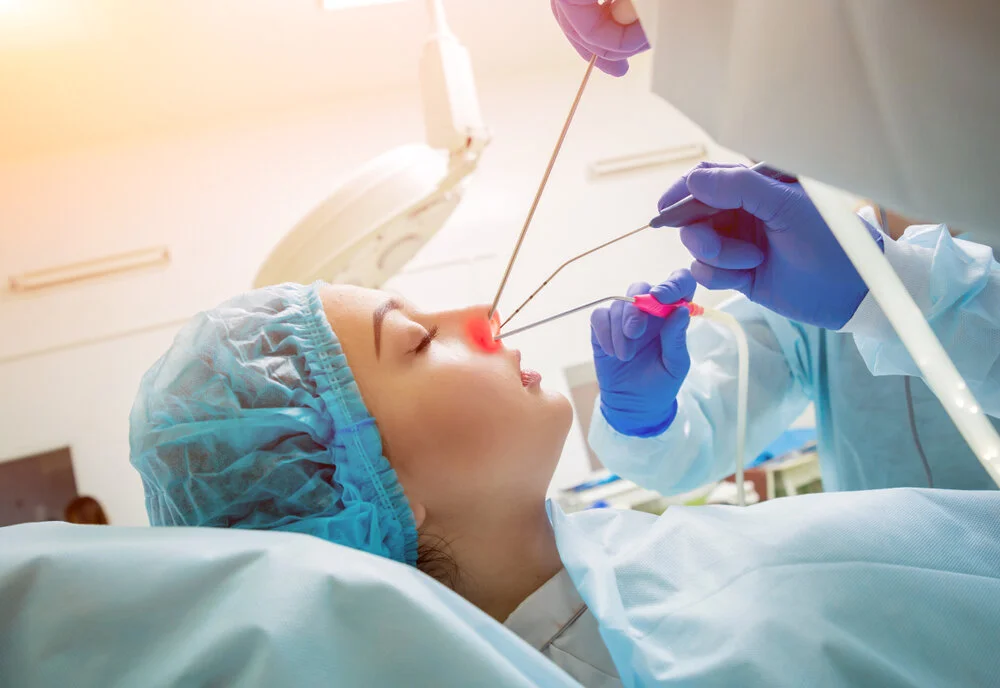When Do You Need Surgery for Nasal Polyps?
The standard of your everyday life can be seriously affected by nasal polyps. Sinus patients experience a wide array of breathing problems (sleep apnea can affect their health and function significantly during daytime and sleep), sinus infections, etc. Many patients choose the procedure to manage their symptoms and to breathe freely. However, operation is a serious decision, so when can an ENT doctor recommend you for nasal polyp removal?
What's the first thing to happen?
Let's first note what nasal polyps are. The nasal polyps are small nasal growths hanging from the nasal lining. They are painless and cancer-free. If they're small, they may not even cause trouble. However, if they are larger, the airways can be blocked and cause various symptoms. These may include other symptoms and complications like asthma, sleep apnea (displeasure of sleep), snoring, pain, "tightness" in the sinus region after nasal drop (moke from the back of your nasal sinuses).
Your ENT doctor would likely try drugs (nose drops, nasal spray or tablets) before going into surgery for decreasing the size of the polyps and alleviate their symptoms. These often perform reasonably well to make surgery unnecessary.
If that doesn't work, what happens?
If the polyps are growing, they cause signs that affect your life negatively. Your doctor may recommend surgery for removal if other treatments such as nasal sprays do not work. If an ENT doctor recommends surgery, the disease is so serious that you can consider removing it.
It is time to figure out when to have your nasal polyps removed once you and your doctor have agreed to do an operation. You will be working with your doctor in advance to plan a surgery, leaving plenty of time for rehabilitation so that the procedure does not stop any significant upcoming events.
This timetable should be considered carefully. You may not want to delay a procedure which can impact your health and quality of life, but you will also want to be reasonably fit in your entire life. In some cases, patients may go home the day of the procedure, but it is a good idea to stay in the hospital overnight.
In addition, make sure you have a few weeks to rest so that your sinuses can be healed properly after surgery.
Most sufferers with sinusitis had been told or had previously had sinus operations requiring the uncomfortable wrapping of gauze in the nasal passages and a long period of healing. Gauze dressing is seldom used today. New progress makes the procedure much easier, comfortable and more effective, with faster restoration times. The best time for the removal is determined by you and your doctor.
After the procedure it will be necessary to treat the sinus cavity properly in order to recover fully. There are various ways of doing this. The materials used to pack the sinus cavity have progressed as surgical technology has progressed. A wide variety of materials is used for the production of modern dressing, but they are designed to stop bleeding, to apply pressure and to encourage healing. This device is implanted after sinus surgery in the sinus cavity. This contains medications, holds the sinus open and gradually dissolves, so that it typically does not need to be replaced. The decreased scar and reduced rate of returning polyps make it less likely that you will be forced to arrange and reserve time in future for follow-up procedures.
What to Do Now?
Tell your doctor if you have concerns about your sinuses. You will work together to determine what your situation is, determine the right course and work towards a solution that you can hopefully breathe deeply and easily in the long run. Visit OKOA in Norman, OK for an appointment with an ENT doctor.
**Disclaimer: The information on this page is not intended to be a doctor's advice, nor does it create any form of the patient-doctor relationship.

